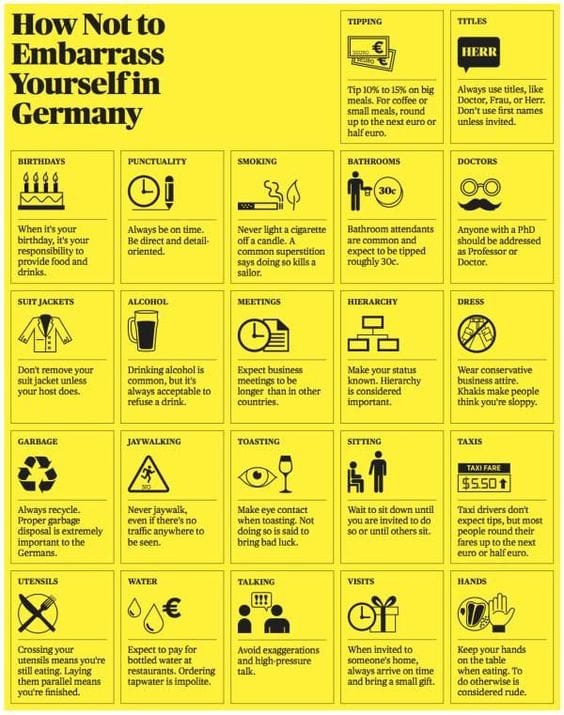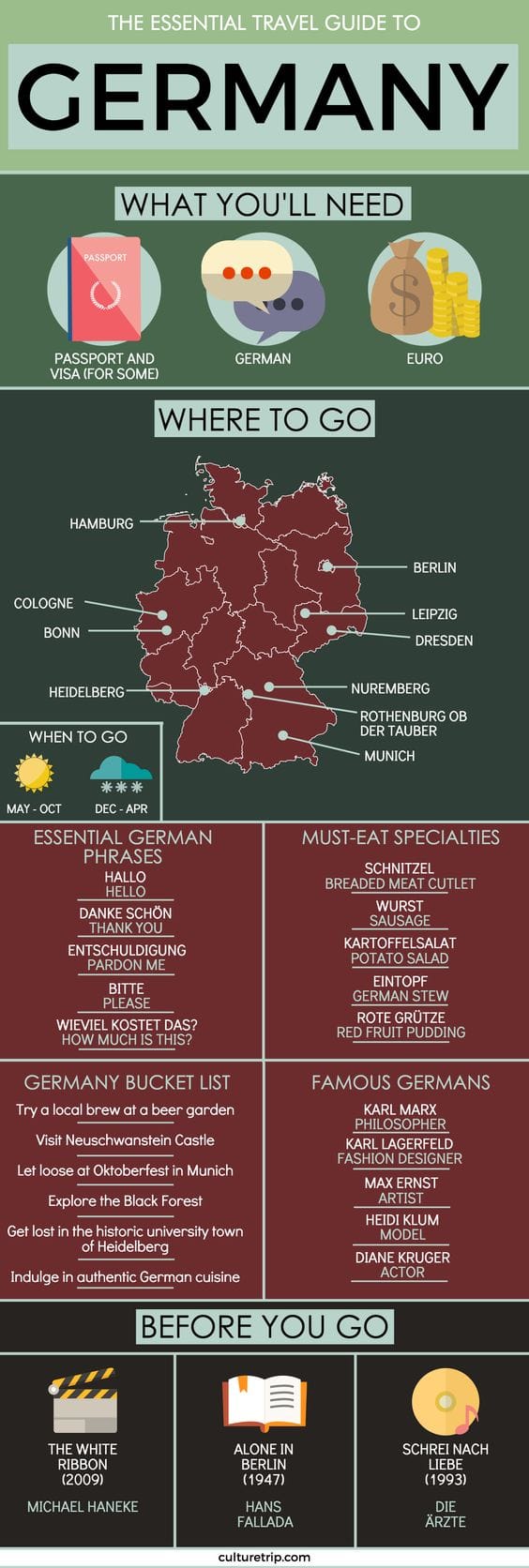STARTBODY
Home > Teach Travel Abroad Tips > Living and Teaching English in Germany - Habits, Customs & Curiosities
Living and Teaching English in Germany - Habits, Customs & Curiosities
Germany is one of the most visited countries in Europe and it has a lot to offer in terms of culture, entertainment and natural scenery.
It also has a healthy market for English language teachers.
In the following section we provide a range of information about the country which should help you to decide whether this European nation is a suitable destination for you to teach English abroad.
It covers all kinds of basic travel information, facts about the country, a guide to German customs, as well as information about the country’s most famous annual festival, Oktoberfest.
Before you head off to Germany to teach English abroad, check out this list of fascinating facts about your new home.
Germans love beer and you can enjoy over 1,500 different varieties made by 1,300 different breweries during your stay.
Music lovers are equally spoiled as German-speaking composers such as Bach, Beethoven, Schumann, Wagner and R. Strauss have dominated the classical music scene for centuries.
Germany is the most populous country in Europe with a population of 82 million.
Animal lovers are also in for a treat as Germany is a very green country with almost 700 zoological gardens, wildlife parks, aquariums, bird parks, animal reserves and zoos to enjoy.
Germany is a popular destination for teaching English as a foreign language, but do you know what visa and other permits you might require?
As it can take some time to complete the documentation process you should begin your application at least 5 months in advance of your intended departure to Germany.
If you have a passport from an EU/EEA country you do not require a visa to reside and work in Germany. Other passport holders will need a visa in order to receive a work permit.
Here are a few tips that might help you to avoid embarrassment when you first arrive in Germany. Punctuality is probably the most important virtue in Germany and you should take it seriously.
You should also make eye contact when toasting – if you don’t you’ll have bad luck. When invited to someone’s home, bring a small gift like a flower, home decoration or alcohol.
When it’s your birthday, you might be surprised that you will be expected to pay for food and drinks for your guests, rather than the other way around.
Before traveling to Germany, you should consider the following tips. Before you go, make sure you have your passport ready and a visa if you need one (check with your embassy).
Anytime between May and October are ideal to travel to Germany since the weather will be warm. December to April is usually cold and rainy.
Practice some basic German phrases to get around easier and don’t forget to exchange your currency into Euros if you need to.
There are interesting places to see all over the country with some of the highlights being Berlin (the capital), Hamburg, Munich, Nuremberg, Heidelberg and Dresden.
Every year, Germans and beer lovers from all corners of the world get together in Munich to celebrate Oktoberfest.
The wedding celebrations turned into a multi-day festival which was then repeated year after year.
The festival has a two-century-old history that dates back to 1810 when Prince Ludwig married Princess Therese.
In 2010, Munich celebrated the 200th anniversary of the Oktoberfest which now averages around 6 million visitors every year.
ENDBODY







